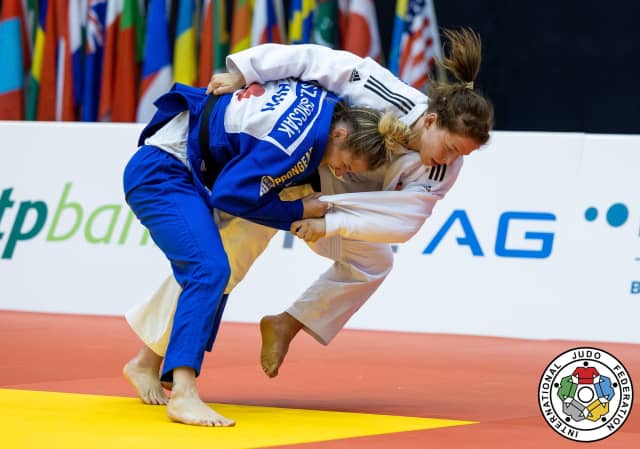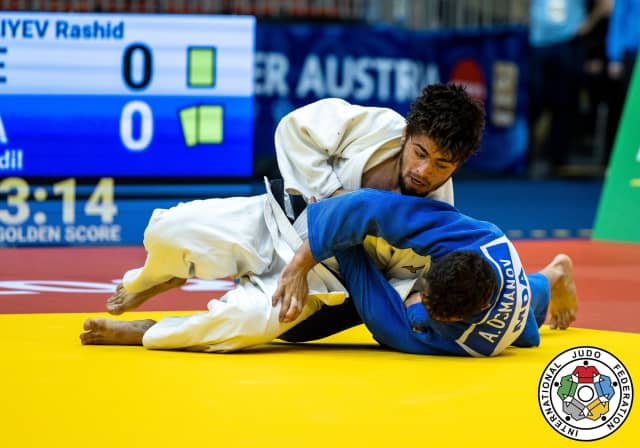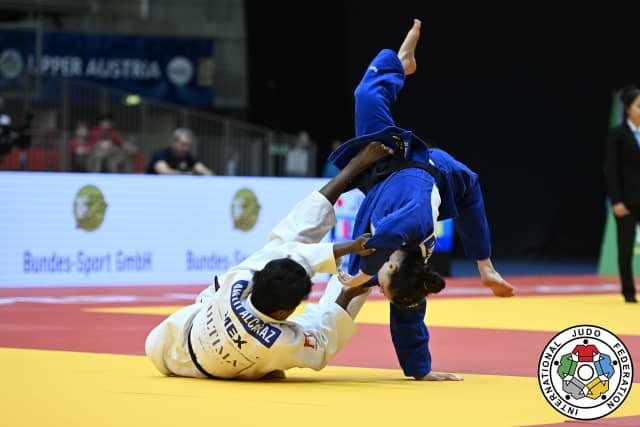“The British fighter at -70kg, Kelly Petersen-Pollard, was able to win some fights in golden score contests and did so in a very positive way, showing good condition throughout, especially in the long semi-final. She was still able to find a positive moment to apply the shime-waza for ippon against Gercsak (HUN) in the semi-final. The Hungarian was also strong but the Brit had the pace and continuous attacks. Conditioning is important at every level but especially on the World Judo Tour where the margins are so small.
In fact, Petersen-Pollard won her first two rounds with 3 shido in each contest. That could sound negative but with her fitness at the maximum level she applied the rules in ways her opponents couldn’t keep up with and won a deserved place in the category final.
At -73kg Mammadaliyev (AZE) reached he final and also had two golden score wins both against Moldovan opponents and again condition made the difference.
In the -63kg category Watanabe (JPN) beat Belkadi (ALG) only by waza-ari. This was a good result for Belkadi who adds to the impression that the African nations are making excellent progress, as we have seen with the Moroccan team, among others.
Watanabe used the left-sided osoto-otoshi with a strong cross grip, in every round. In her first fight she didn’t manage to convert it to ippon but still, it scored. This was a real example of tokui-waza in action. Against the Ukrainian, was under pressure from an early score, earned with sumi-gaeshi. It took the Japanese fighter until just 30 seconds before the end but she made the osoto attack again to win. She then used the very same attack against recent world silver medallist Leski (SLO) to reach the semi-final. She became stronger through the day from a slow start. Against the Mexican judoka in the semi-final, the same technique and gripping pattern were applied and very successfully, providing the first crack in Awiti Alcaraz’s impressive performance in Austria. The Japanese judoka was dominant with the same movements, grips and throws all the way through.
We must also note that Prisca Awiti Alcaraz (MEX) has approached today with a new confidence since the worlds just days ago. She deserves to feel this as it is clear she is working hard and in the right way to earn this kind ion progress and now consistency.
In the same category, we can say that Leski’s loss seemed unnecessary. Her performance from Doha couldn’t be replicated here but it can be complicated to imitate such a great day so soon.”
Day two comes to a close with a diverse medal table, an interesting lesson in mastering tokui-waza and also one in ensuring there is always a high level of conditioning for all athletes. Day 3 is only around the corner and the heavyweights are sure to bring with them some power and big ippon judo.




